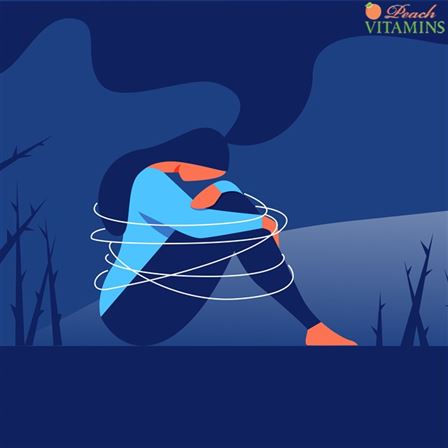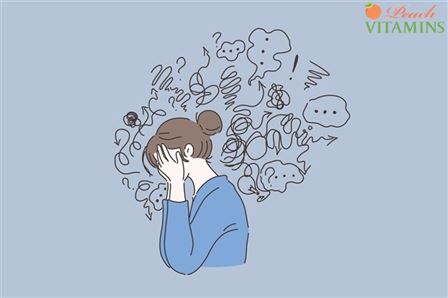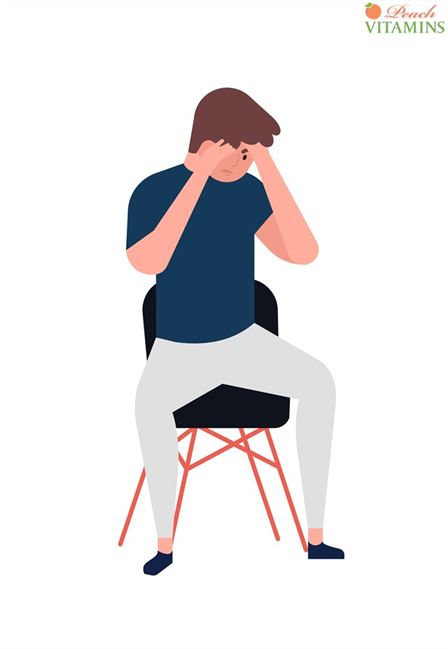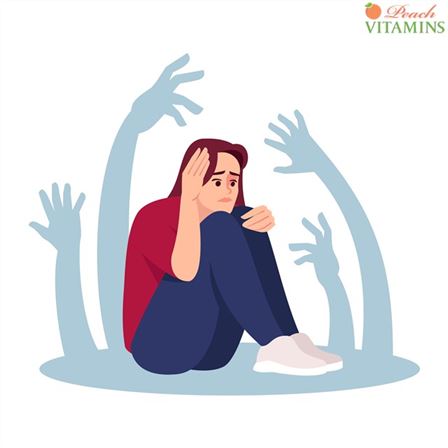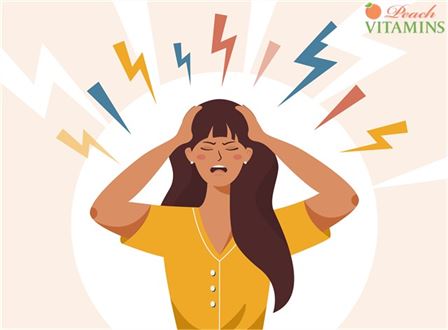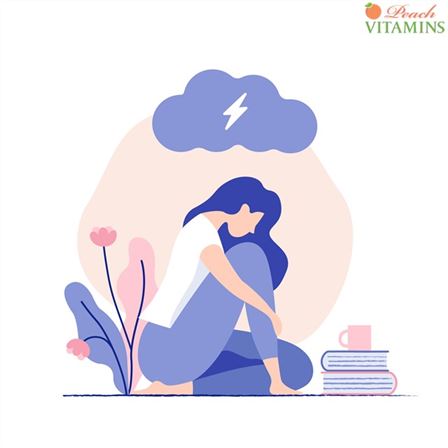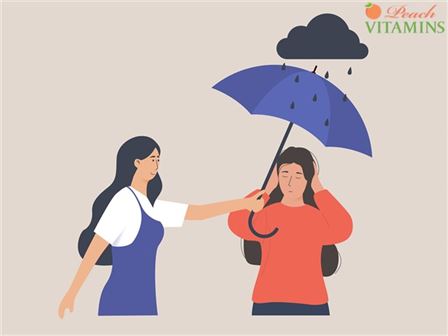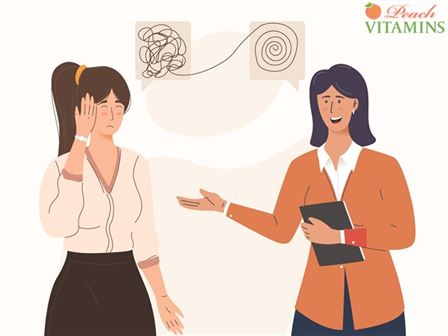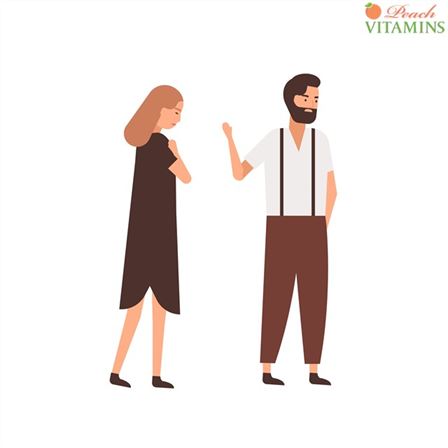Anxiety disorders affect more than 40 million Americans each year. They include panic disorder, generalized anxiety disorder, obsessive-compulsive disorder, and posttraumatic stress disorder. These conditions have in common the presence of excessive worry or fear.
In addition to causing distress, these fears may interfere with daily activities such as work, school, socializing and quality sleep.
Emotional effects of anxiety disorders include feelings of guilt, anger, and low self-esteem. Some individuals experience them so intensely that their lives become unmanageable.
The most effective treatment for all types of anxiety involves learning to manage your thoughts and emotions rather than eliminating them. This approach is just as successful as anti anxiety medication at reducing both short-term and long-term symptoms.
Many patients report feeling better after making lifestyle adjustments like eating healthier foods, getting adequate rest, exercising regularly, and managing stress effectively. However, some find it helpful to try complementary alternative therapies along with conventional treatments.
Symptoms of Depression
Major depression or severe depression is characterized by persistent sadness and a lack of interest in usual activities. It’s not normal to feel depressive symptoms every day for weeks on end. If you’re experiencing any of the following signs and depression symptoms, talk to your doctor right away:
• Feeling tired or having little energy
• Difficulty concentrating or remembering details
• Thoughts of death or suicide
• Changes in appetite
• Feelings of worthlessness or guilt
Moderate depression causes less severe but still noticeable mood swings. You might notice one or two of the above symptoms, especially if you’ve had mild depression before. Moderate depression usually lasts longer than two months.
If you suffer from mild depression, you’ll probably only notice minor changes in your moods. Mild depression doesn’t last very long. But even when it goes away, it leaves behind lasting damage.
Extreme lows mark clinical depression in mood accompanied by other symptoms. A symptom may vary depending upon which type of clinical depression you have. Clinical depression includes major depressive episodes, dysthymic disorder, and bipolar disorder.
Remedies for Depression
There are several ways to seek treatment for depression naturally without resorting to antidepressant medication. Here are three simple steps to take:
1) Exercise Regularly
Physical activity helps relieve tension and improve overall health. When combined with diet modifications, regular exercise improves mental clarity and reduces fatigue. Studies show that regular aerobic activity, strength training, and yoga can boost brain function and decrease cortisol levels, a hormone linked to increased risk of heart disease and diabetes.
2) Eat Healthy Foods
A healthy diet rich in fruits, vegetables, whole grains, and fish provides essential nutrients needed for the proper functioning of the body. A balanced diet high in fiber and protein will keep blood sugar stable while delivering enough calories to fuel your busy life. Eating well-balanced meals throughout the day keeps cravings under control.
3) Manage Stress
Stress management techniques can help prevent depression. Learn relaxation exercises such as deep breathing, meditation, and progressive muscle relaxation. These methods teach you to focus on what you want instead of what you don’t want. They also allow you to let go of negative feelings, so they no longer affect your daily routine.
Other Natural Therapies for Depression and Moderate Anxiety Symptoms
Anxiety attacks may be triggered by physical conditions, emotional issues, or environmental factors. Some common symptoms of anxiety include:
• Physical pain
• Emotional distress
• Environmental stimuli
The best way to manage these situations is through self-care strategies. Self-help measures include:
• Relaxation therapy
• Cognitive behavioral therapy
• Mindfulness practice
Relaxation Therapy
This technique involves learning how to relax muscles and slow down thoughts. This allows you to gain more control over stressful emotions. In addition, practicing mindfulness during times of stress can help you cope better with everyday challenges.
Mindful awareness means being aware of everything going on around you at all times. It’s like having eyes in the back of your head. By paying attention to every detail, you’re able to see patterns and make decisions based on facts rather than emotion.
Cognitive Behavioral Therapy
When faced with overwhelming emotions, mindfulness based cognitive therapy, CBT, teaches you skills to deal with them effectively. Through guided imagery, cognitive restructuring, and problem-solving, you learn to identify irrational beliefs and replace them with rational ones.
Mindfulness Meditation Practice
Practicing mindfulness requires you to pay close attention to present moment experiences. You become fully engaged in whatever you do, whether eating, walking, talking, or working out. As you engage in activities mindfully, you begin to notice details that would otherwise pass unnoticed.
The management of anxiety and depression should always involve professional medical care. However, if you suffer from milder forms of either disorder, try one or two of the above suggestions before seeking treatment. If you find yourself struggling with severe cases of both disorders, seek immediate assistance from a qualified physician who specializes in treating mood disorders.
Herbal Medicine for Mental Health Conditions
Mental health professionals have been using herbs since ancient times. Herbs remedies treat mental illnesses because they had few adverse effects compared to other treatments available today. Today, herbal treatment has gained popularity due to its effectiveness and safety.
Many studies for depressive disorder show that certain plants contain chemicals called phytochemicals which act as antioxidants and anti-inflammatory agents. Phytochemical compounds found in medicinal herbs work together synergistically to boost their therapeutic effect.
Herbal supplements offer several beneficial effects when taken regularly. Here are some examples:
• Helps relieve tension and nervousness
• Promotes healthy sleep cycles
• Improves memory function
• Boosts energy levels
• Relieves headaches
• Reduces inflammation
• Lowers cholesterol level
• Increases immune system activity
Some popular herbs for improving brain functioning include:
• Ginkgo biloba – this dietary supplement improves blood flow throughout the body; helps improve concentration and memory
• Ginseng – increases metabolism and boosts immunity
• Gotu kola – promotes relaxation and reduces stress
• Passion flower – relieves pain and calms nerves
• Valerian root – aids restful sleep
There are also specific herbs that may be helpful for particular conditions such as anxiety and depression. Some natural supplements that are effective against these ailments include:
• St John’s wort – treats depression by increasing serotonin production
• SAMe – normalizes neurotransmitter balance
• 5HTP – stimulates serotonin synthesis
• GABA – relaxes muscles and decreases anxiety
• B vitamins – promote nerve cell growth and repair
If you want to use an herbal remedy safely to treat depression or treatment of anxiety, consult your doctor first.
Conclusion
Alternative therapy like yoga, meditation, exercise, etc., play an essential role in our life. It not only gives us physical fitness but also provides emotional stability. So we must take advantage of them.
A natural remedy for anxiety and depression will provide anxiety relief without any harmful side effects. In addition, it does not require prescription drugs. Natural remedies for anxiety and depression are a great way to relieve stress, boost your mood disorder, and get back on track. There are many natural ways to treat anxiety or depression that can be used alongside any other treatment you may be taking.
Therefore, it is highly recommended to all those looking for safe and cost-effective ways to deal with anxiety and depression.
FAQs for Natural Remedy For Anxiety And Depression
What Is The 3 3 3 Rule For Anxiety?
The 3-3-3 rule states that if you have three positive thoughts in the morning, your mood will be better than at breakfast time by lunchtime. If you have three negative thoughts in the morning, then by noon, your mood will be worse than it was when you woke up. This simple technique has been proven to work over and over again. It’s easy to remember because each number represents one day.
Chronic anxiety disorder occurs when someone experiences excessive worry and fearfulness for more than two months. These feelings usually last longer than what would typically happen after experiencing something stressful.
Symptoms of chronic anxiety disorders vary depending upon the person affected. However, some individuals experience constant worrying, tension or anxiety, difficulty sleeping, irritability, fatigue, muscle aches, stomach pains, trouble concentrating, and frequent panic attacks.
How Can I Reduce Anxiety Immediately?
Anxiety attacks happen when you have too much adrenaline in your body. This occurs because the brain chemical has not been able to get rid of it fast enough. Adrenaline causes the heart rate to increase, which makes blood flow faster through the arteries. When the blood pressure flows more quickly than usual, it increases pressure inside the veins.
As soon as the increased pressure reaches the lungs, they start filling with air. The excess air rushes out into the chest cavity because the lungs cannot hold their total air capacity. This creates a sensation similar to having water poured down the neck. You might even hear yourself gasp for breath. Your breathing becomes rapid and shallow.
Breathing exercises such as deep breaths and slow exhalations can calm these sensations. Deep breathing helps oxygenate the bloodstream. Slow exhaling allows the diaphragm to return to its resting position.
Owner of kratom, SARMs businesses pleads guilty to conspiracy charge
Source: (naturalproductsinsider.com)
Landmark survey reveals young people’s climate anxiety
Source: (nature.com)
[wps_products product_id=”6543179546659″ html_template=”product.php”]

